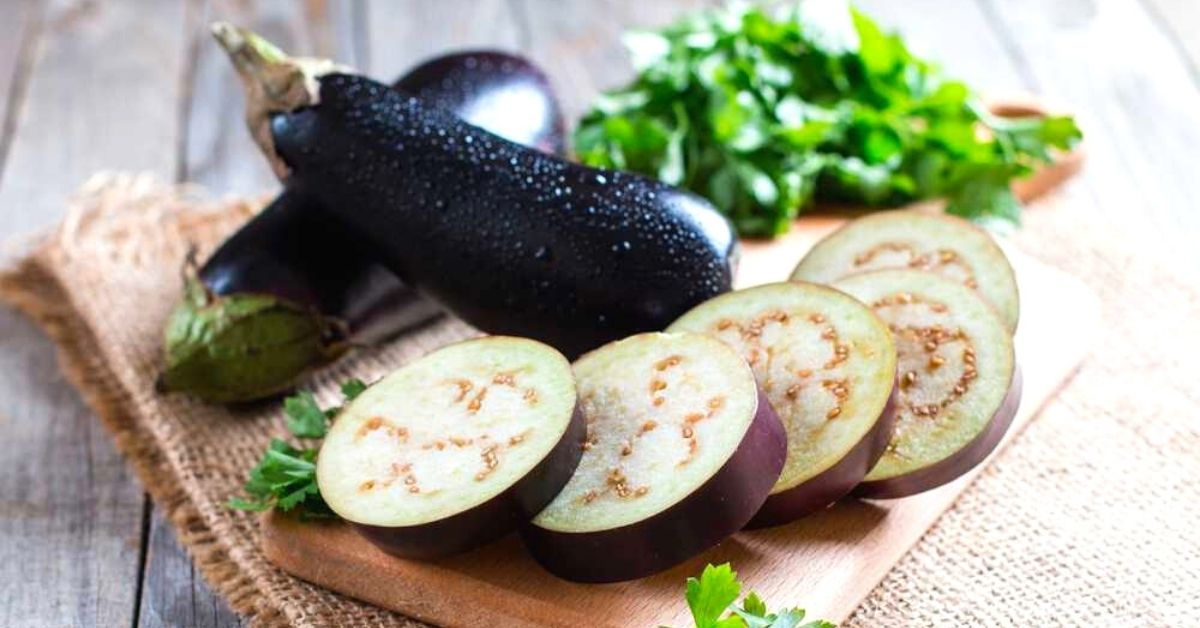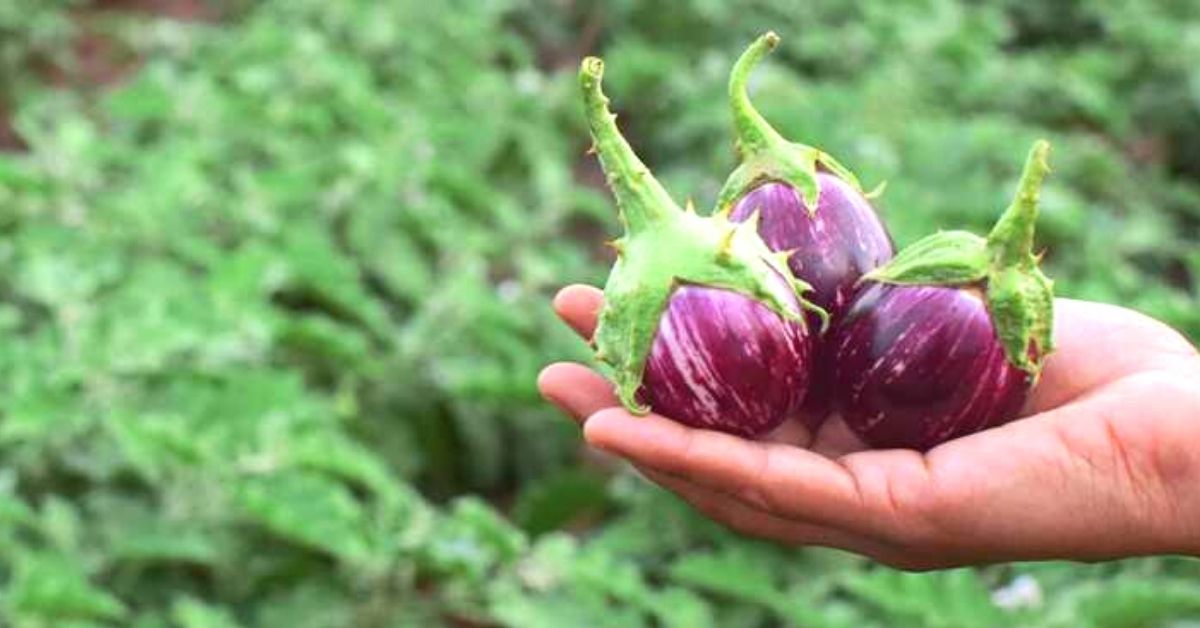Baingan in Hindi, Vaangi in Marathi, Badne Kai in Kannada, Begun in Bengali, Brinjal, Eggplant or Aubergine in English. This is a vegetable with many names.
Brinjal offers a grand variety in Indian delicacies as well, such as Bharwa Baingan, Khatte Baingan, Baingan Curry, Baingan Masala, Baingan Bharta, Baingan Fry and many more. No wonder it is sometimes called the ‘King of Vegetables’.
The vegetable is known to have Indo-Chinese origin and is today grown and consumed globally, mainly in tropical and sub-tropical areas. Brinjal is considered domesticated around 300 BC in Indian territory and is mentioned in ancient scriptures. It then migrated to China, Japan, Europe and other parts of the world.
Besides the taste and history, brinjal has immense health benefits that include weight loss, reducing chronic diseases, high content of minerals, vitamins and bioactive compounds vital for human health.
Weight loss

Brinjal could serve as a perfect vegetable for weight loss due to its low calorific value and high dietary content that helps in increasing metabolism. Every 100 grams of brinjal contains 15kcal, including 0.9g protein, 0.4g fat, 2.2g carbohydrate and 2.7g fibre. It contains Polyphenols, a source of chlorogenic acids, among others, that helps in reducing body mass and fat. Research shows that overweight subjects administered with the compound for four weeks demonstrated bodyweight reduction.
Additionally, Nashik based nutrition consultant Dr Karishma Patil says, “It also contains 92 per cent of water, which implies that the vegetable, when consumed, helps to fill the stomach taking care of the appetite while assisting weight loss.”
She adds that brinjal contains complex sugars that do not get easily absorbed in the body, thus preventing weight gain. “The Saponin helps prevent accumulation and absorption of fat in the system, thus aiding in weight loss. It also has no cholesterol to affect the body adversely,” she says.
Gut friendly
The vegetable contains chlorogenic acid and anthocyanin compounds. They act as antioxidants, anti-cancer, anti-microbial, anti-diabetic, anti-cancer and neuroprotective agents. The anthocyanin, usually found in the skin of vegetables and fruits, are responsible for pigmentation.
Epidemiology evidence suggests that the consumption of antioxidants can significantly reduce the chances of cancer. In addition, multiple studies suggest that brinjal has therapeutic effects on burns, warts and other inflammatory diseases such as stomatitis and gastritis.

Mental health and Alzheimer’s
Research tells that deficiency in antioxidants has adverse impacts on the body’s defence system. It leads to oxidative stress, formed due to disturbance in the production of free radicals and antioxidant defences, including mood disorders.
The teardrop-shaped vegetable found in green, purple, violet and other colours is rich in antioxidants and helps fight anxiety disorders and depression. Brinjal can help reduce the symptoms within weeks.
Oxidative stress leads to the formation of neurodegenerative illnesses such as Alzheimer’s disease. Also, including vitamins, C and E in the diet found in brinjal can reduce the risks.
Good for the heart
The vegetable may reduce Low-Density Lipoprotein (LDL) or bad cholesterol, responsible for increasing heart disease and stroke risk. On the other hand, Brinjal increases the good cholesterol in the body thanks to the presence of anthocyanin.
A word of caution
Despite abundant benefits, experts warn that the vegetable may trigger adverse health conditions among some individuals.
Dr Geeta Dharmatti, a Pune-based clinical nutritionist, says, “Brinjal or eggplant belongs to the nightshade family as it contains saponins and may trigger auto-immune diseases or inflammation in an individual.”
Dr Geeta says that people prone to allergies should consume it with caution as it may also cause rashes or itching.
Adding further, Dr Karishma says that the vegetable may aggravate the inflammation or pain among arthritis patients. Moreover, the vegetable contains significant oxalates, and persons suffering from kidney stones should avoid overconsuming them.
Here’s a recipe for you to try.

Grilled Eggplant Salad
Serves: 2 person calorie value: 75kcal per serving
Ingredients:
*1 medium eggplant halved lengthwise and sliced crosswise 1/2 inch thick
*1 tablespoon extra-virgin olive oil
*Sea salt and freshly ground pepper
*1 small bowl Halved cherry tomatoes
*1/4th bowl of chopped parsley
*1 teaspoon of fresh lemon juice
Preparation: Preheat a grill pan. Brush the eggplant slices on both sides with olive oil and season with salt and pepper. Grill the eggplant over medium heat for about 5-6 minutes until lightly charred and tender. Transfer the eggplant to a bowl. Add tomatoes, parsley and lemon juice, season with salt and pepper and toss.
Edited by Vinayak Hegde
No comments:
Post a Comment